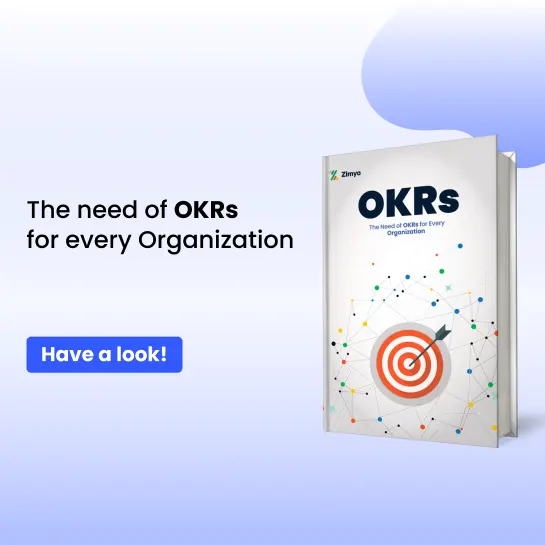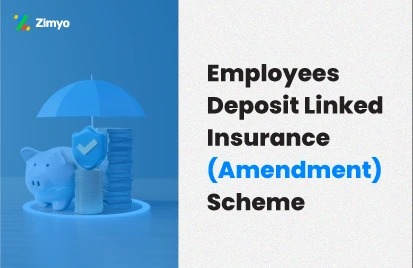Are you not aware of why your corporate wellness program isn’t working?
Worry not, it’s not something that can’t be fixed.
Often, with the help of employee participation, organizational wellness initiatives need to be revamped. Sometimes it’s as easy as convincing management to approve a budget that funds the necessary wellness initiatives.
A well-designed corporate wellness program will lower healthcare expenses, increase employee performance, and boost employee health. Therefore, it can be hard to maintain and increase success rates in most initiatives if you don’t examine what’s working well or what isn’t.
This article will look at some of the most common and easy to rectify errors that businesses make while administering their wellness initiatives. So, don’t make these five blunders when developing or updating yours.
What Is A Corporate Wellness Program?
A corporate wellness program is a method to improve employee health by the firm. It could comprise a range of initiatives or activities aimed at achieving specific health goals in order to improve employee well-being.
Campaigns such as these may be part of some programs:
- Health screenings
- Educational seminars
- Weight-loss programs
- Health insurance programs
The objective is to improve the general health of employees, boost workplace productivity, and reduce healthcare expenses. Therefore, if your employees aren’t engaged in maintaining or improving their health on their own, not having a corporate wellness program might be an expensive decision.
5 Mistakes In Your Corporate Wellness Program
Here, we’ll go through the five blunders that wellness promotion experts make that could hinder the wellness program’s performance.
#1: No Support From the Top
Remember the song “We’re following the leader” from elementary school? You can use the same jingle to promote corporate wellness programs. It’s difficult to persuade employees to adopt healthy habits if the company’s management doesn’t promote them or follow through on them. Moreover, employees keep a close eye on management, particularly if the attitude is more “do as I say, not as I do.”
The Fix: Employees are more likely to engage in the company’s wellness culture if you actively support them. Therefore, if the program is held responsible by the leadership, this helps keep the endeavor alive. Create a strong wellness committee to plan campaigns and interact with managers early on.
#2: No Consistency
Employees are more likely to participate in and benefit from events that you organize on a regular basis. Therefore, each wellness program may be more effective for your employees if it follows a fixed regular routine. If you carry them out the right way, they’ll even begin to expect and look forward to these events.
The Fix: Holding regularly scheduled activities displays a company’s commitment to its corporate wellness program and its employees’ health.
#3: No Feedback from Leadership or Employees
If relevant feedback isn’t provided, no program or campaign can be improved. Any well-established wellness program exists to benefit and support employees and management; it cannot exist in a vacuum. Moreover, by surveying employees and adapting programs to their responses, you can provide them with the programs they need and want.
The Fix: After activities, get feedback to find out what worked, what didn’t, and what you’re lacking. Use something as simple as a breakroom comment box or a survey sent out by your HR software. Make a memo or a checklist to use as a reference for the next activity.
#4: No Solid Goals
Your company’s and employees’ corporate wellness programs should contain both achievable short- and long-term wellness goals. In order to develop an evergreen and long-lasting program, connect the wellness program to the organization’s mission and vision. Having clear goals will ensure the success of your wellness program, whether you aim to reduce employee absence or healthcare expenditures.
The Fix: Set defined and measurable goals at the start of every new initiative or program your wellness committee develops. Keep in mind the measures through which you evaluate your achievement — Cost-cutting in healthcare? What are the participation rates? How satisfied are your employees?
#5: No Generational Program Differences
Career, social, financial, physical, and community well-being are five dimensions of employee well-being that influence everything from health to work performance, according to a recent Gallup study.
According to the findings, one out of every fourteen people is successful in all five areas.
As you might expect, a one-size-fits-all approach to well-being and health issues does not function effectively. Therefore, it can be difficult to meet everyone’s concerns in a company with a mix of Gen X, Baby Boomers, and Millennials.
Everyone’s sense of well-being is unique, particularly in the five categories listed above. Millennials, for example, maybe physically active but not economically fit. Baby Boomers, on the other hand, are approaching retirement while still attempting to maintain their health in order to fully enjoy retirement. Ask employees about their top well-being concerns to tailor programs to specific requirements for optimal outcomes.
The Fix: It is easier to raise the percentage of employees who are thriving when management recognizes that different generations have specific and unique well-being challenges that require assistance. Individual generations and their needs can be surveyed to help managers truly understand what kinds of initiatives would be most beneficial to each group.
Tips On Building An Effective Corporate Wellness Program
It takes time to develop and sustain a successful corporate wellness program.
Strong leadership buy-in is required, as well as the commitment of a wellness committee that is focused on what works best for employees. A poor wellness program, like most health goals, will not yield significant gains. The importance of consistency cannot be overstated.
A few last tips for ensuring the success of your wellness program:
- Work with management – As much as possible, keep management involved in making wellness a part of the company’s objectives and culture.
- Align initiatives with long-term organizational goals – If needed, revise the mission/vision.
- Create a responsive wellness committee – To stay on track, make sure the committee has the right people on board, including access to management and staff who are prepared to use surveys and attend to both parties.
- Create a yearly plan – Setting monthly, quarterly, and yearly goals for the wellness program is easier with a long-term plan. Remember to include costs in your annual budget.
- Repeat the survey, research, and results process- Collect and analyze data on the development and outcomes of your program. Use this crucial information to fine-tune your strategy for success and to demonstrate leadership success to gain sustained support.
A Word From Zimyo
There are a few basic, avoidable stumbling blocks to establishing a truly effective corporate wellness program.
Starting a corporate wellness program has its own set of difficulties. They succeed for the same reasons they fail. It’s totally up to you to make it all happen, and it’s not nearly as complicated or time-consuming as you may think. Therefore, when it comes to implementing successful workplace wellness programs, a few basic actions can make all the difference.
Above all, keep in mind that great wellness programs are not one-time projects. Wellness programs are the benefits that change and grow with the requirements of the organization and the participants are the most successful ones.







